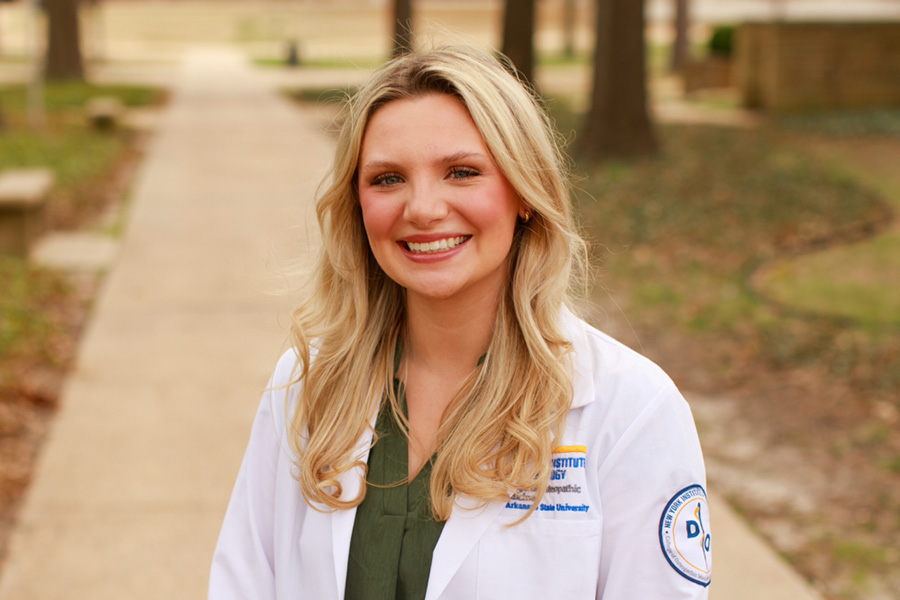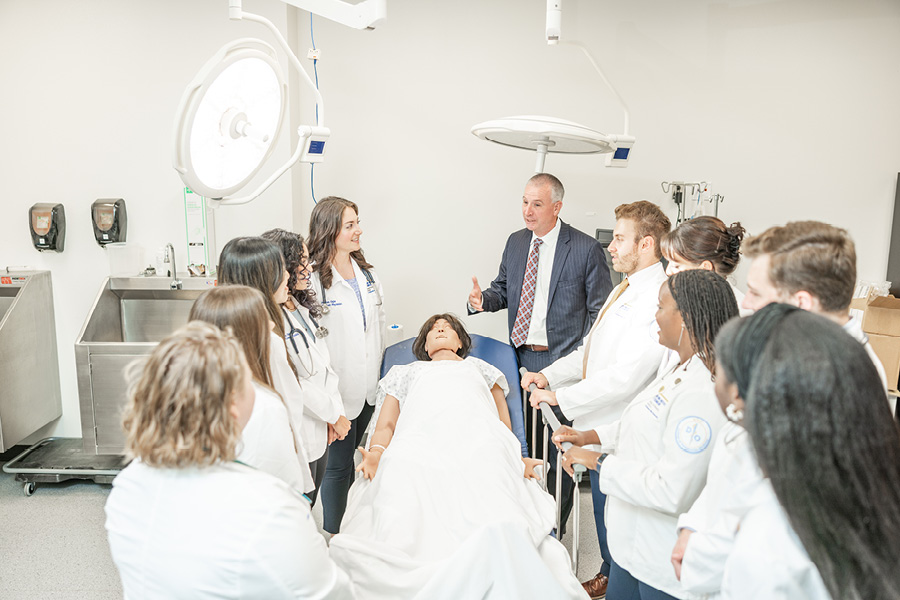Staying Healthy at 35,000 Feet
On June 24, the TSA reported an all-time high for the number of airline travelers screened, and major American airlines expect to transport 271 million passengers this summer—a 6.3 percent increase from last year.
With the summer travel season in full swing, board-certified infectious disease physician Carl Abraham, M.D., assistant professor at the College of Osteopathic Medicine’s Jonesboro location (NYITCOM-Arkansas), arms passengers with information to stay healthy at 35,000 feet.
Abraham notes that some people may be surprised about the risk of germ spread on most airplanes.
“Commercial airplanes contain high-efficiency particulate air (HEPA) filter systems, which exchange the air rapidly. In general, the risk of spreading an airborne pathogen is lower in an airplane than in other indoor, public settings,” he says. “However, some studies suggest that sitting within two rows of an infected passenger does increase the risk of acquiring an airborne infection.”
Given this, Abraham urges anyone with a possible respiratory tract infection to wear an N95 mask, as well as those with compromised immune systems.
“Disinfecting touched objects, like seatbelts or trays, won’t hurt, although airlines are supposed to make sure areas are cleaned thoroughly between flights,” he adds.
But, the real hotspot might be the airplane lavatory. Here, transmission can occur either by encountering surfaces contaminated by bacteria or by inhaling air contaminated with certain viruses—like influenza, SARS-CoV-2, and measles—after being used by a contagious passenger. Transmission of norovirus, the common cause of diarrheal outbreaks on cruise ships, has also been reported.
“In general, the surfaces of public restrooms are frequently contaminated with fecal flora, bacteria found in stool. Airplane restrooms that are shared between passengers are no exception,” says Abraham. “And, although airlines clean the lavatory between flights, their use during the flight results in contamination of the toilet, sink handles, door handles—inside and outside, and especially the floors. Bacteria from the bathroom can also track into the cabin on the bottom of our shoes.”
To avoid coming into contact with these germs, Abraham advises passengers to open and close lavatory door handles with a sanitizing wipe, use toilet seat covers, and close the lid before flushing.
“Importantly, everyone should always wash their hands or practice some form of hand hygiene before putting clothes back in place and before and after eating,” he says.
More News

Seven Years of the Big Give
The New York Tech community celebrated in a big way, bringing in $421,596 to help support student experiences across the university’s campuses.

Re-envisioning Our University’s Libraries
Millie González, M.L.I.S, M.B.A., has joined New York Tech as the first dean of libraries.

Medical Students Receive Residency “Marching Orders”
Upon graduating this spring, 14 members of NYITCOM’s Class of 2025 will complete their residency training in the U.S. Armed Forces.

A Call to Medicine
After her grandfather was seriously injured in a collision and witnessing his lack of access to specialists, Harley Duncan decided she wanted to be part of the solution. With the goal of becoming a neurologist, she is committed to practicing near the underserved community where she was raised.

More Than a Medical School
NYITCOM-Arkansas is delivering on its mission to increase the number of physicians and reduce healthcare inequity in the Delta region.

Living His Dream
Tyler King (D.O. ’20) says he’s living the dream working as a family physician and serving as a city council member in Laredo, Texas.